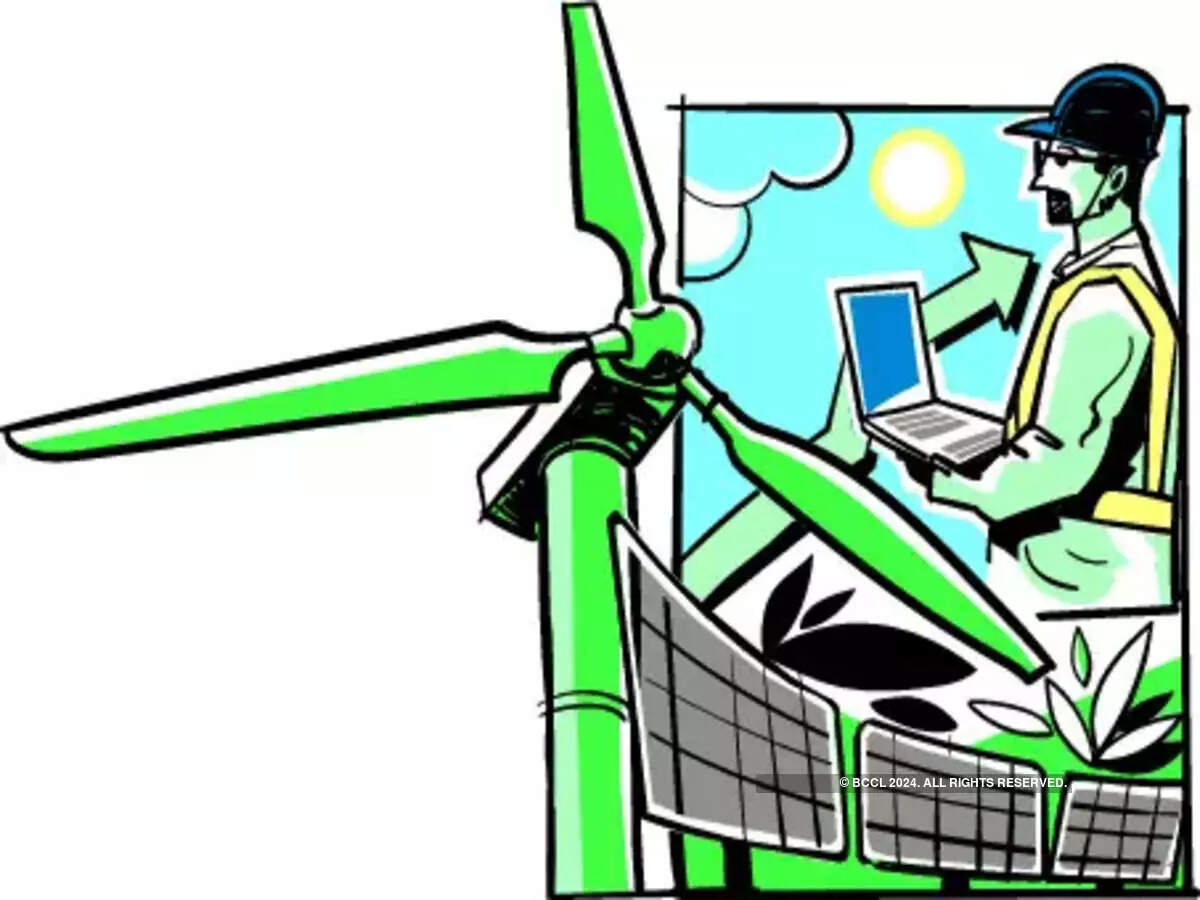Dear Readers,This week, a remarkable story caught my attention: a 15-year-old named Heman Bekele from Virginia has been named Time’s ‘Kid of the Year’. His innovative experiments with laundry detergent have led him to invent a soap that could potentially treat and prevent multiple forms of skin cancer—a truly astounding achievement at such a young age.
Well, this week began Hindenburg’s allegations against the SEBI chairperson, which has captured the attention of every financial professional and investor. Yet, the mid-week respite of India‘s 76th Independence Day allowed us to pause, reflect, and rejuvenate. As we woke to patriotic songs, inspiring messages, and vibrant tricoloured visuals, the nation’s spirit was on full display.
Prime Minister Narendra Modi while addressing the nation from the Red Fort eleventh time highlighted many issues and made a few promises. What I picked up for my today’s note is his idea of green jobs. I have already written a series of articles on jobs… as this is in fact the most burning issue that the economy is facing. ( India’s employment paradox, Not with the same company, employees switching jobs continues, Modi 3.0: Economy and jobs, Will the Union Budget create jobs?)
I strongly feel the biggest worry for the world and India is climate change and the jobs. PM Modi has connected both with one – green jobs. He said that the government is working on a green hydrogen mission and they are building a global hub.
What are green jobs?Back in 2016-17, when JPMorgan appointed its first Chief Sustainability Officer (CSO), I was curious about the role. Over time, it became clear that sustainability is becoming a central focus for businesses worldwide, with the role of CSO gaining prominence not just in banks and finance companies but across all sectors—even regulators are now appointing CSOs. In India, many banks and companies have assigned CSO responsibilities to senior executives, if not directly appointing them.

I think to promote green jobs we need to place in CSOs first who would define the roadmap of green jobs. In India sustainability and ESG (Environmental, Social, and Governance) are not taken seriously. And my worry is that green jobs will also fall under the same category. For a leader like Modi, it is a great thought and most relevant, but the situation on the ground is very different. Many companies still fail to adhere to basic CSR (Corporate Social Responsibility) and diversity practices. The foundation for green jobs must begin here—planting a few trees and painting buildings green does not suffice.
Green jobs broadly encompass roles within the ESG framework. Solar energy, renewable resources, recycling industries, and non-profits are all part of this ecosystem. Additionally, sectors such as organic food, green lifestyle, energy, and transportation are crucial to the green economy.
Green is going to be the biggest industry in the future as the world is focusing on it and India may get a benefit because of two reasons. One, we are both a producer and consumers as we are the largest market because of the size, and second, we can be the net exporter if we begin early.
How big is the green economy?
Numerous reports highlight the potential of the green economy. According to a report by the Skills Council and Sattva Consulting, India could create up to 35 million green jobs by 2047, unlocking a value of $1 trillion by 2023 and potentially growing to $5 trillion by 2047.
Bloomberg NEF and various ESG and Climate solution providers have also done enough research on this and they too see a trillion-dollar potential in this segment.
But talking about the big picture is one thing, we need to bridge the gaps and the question is India doing anything for it. Are there policies in place?
The green pain points
Even large industries do not have policies to remove waste and recycle or process it. We still have not built R&D innovation and capability centres. More importantly, we need an education system. In my columns on jobs and skills, I have repeatedly advocated for a complete overhaul of the education sector.
The financial institutions and specifically the banks should encourage such industries. Earlier in an interview with me, the Chief Sustainability Officer of the Monetary Authority of Singapore, (MAS) had highlighted this aspect in detail. Industries and the entrepreneurs emerging in this sector should get more attention.
On one side we have aimed to become a net-zero emissions economy by 2070 and many companies have said that they will become net-zero way before that deadline. But as of now we are focusing only on the manufacturing and chemical industries, which are the big ones for sure, but what about the tech companies that are also contributing to emissions with their data centres and huge electricity consumption?
The job challenge
Non-availability of jobs and a lack of talent are both equally big problems in India right now. Remember, the CEO of Larsen & Toubro has on record stated that they are short of 45,000 people because they are not finding skilled workers. But on the other side, there are millions of people looking for jobs. Skill mismatch is a big problem. Where exactly will the green jobs be accommodated here?
The major challenge in the country is skills development. The challenge is also that young boys are not interested in developing skills. Many companies and headhunters are complaining that youth are not paying attention to their jobs and developing skills. I also think we are chasing AI and ML too much. For a country like India, the jobs on the field are also going to be equally important. Remember despite having automated metro rail, we still need security guards to make people stand in queues. We are building airports, we will need ground staff, baggage handlers, bus drivers and cleaners. Airlines have no alternative but to open skill centres, which are currently mostly for air hostesses.
Often bankers ask when was the last time you went to a bank branch while narrating the story of the digital, but neither the bank branches are closing down nor the crowd at the branches is reducing. It is because of the size of the country and its diversity. Not just the government but industries also need to invest in skills including green.
Without creating green jobs, ESG, sustainable finance etc won’t be successful.
While building a roadmap for India, and specifically Viksit Bharat, we need to put diversity at the top and plan accordingly.
Don’t forget, there are graduates sitting below the tamarind tree in the hinterland just 5-6 hours away from metro cities. They don’t know what to do with their life. There are no jobs in the village or nearby towns, and going to cities is not feasible for them. The tree is offering them shade but not the future, let there be an alternative for these people to learn new skills and get jobs… green jobs perhaps.
(Editor’s note is a column written by Amol Dethe, Editor, ET CFO. Click here to read more of his articles exploring several buzzing topics)




